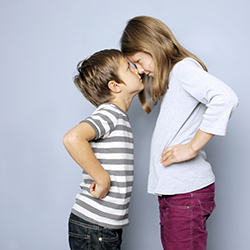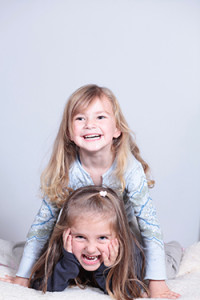- Calls to this hotline are currently being directed to Within Health or Eating Disorder Solutions
- Representatives are standing by 24/7 to help answer your questions
- All calls are confidential and HIPAA compliant
- There is no obligation or cost to call
- Eating Disorder Hope does not receive any commissions or fees dependent upon which provider you select
- Additional treatment providers are located on our directory or samhsa.gov
Sibling Abuse: Growing Up with Pain

Contributor: Crystal Karges, MS, RDN, IBCLC, Special Projects Coordinator at Eating Disorder Hope/Addiction Hope
Sometimes it is the people closest to us who inflict physical or emotional pain in our lives. For some individuals, this can mean a sibling or a person that one has grown up with.
Sibling abuse can be physical, emotional or sexual by nature and can happen between birth children, step-children, foster children, or adopted children.
Rivalry Or Abuse?
While it may be perceived as “rivalry” among children, sibling abuse can be a traumatic violation of an individual’s emotional, physical, and spiritual well being.
Sibling abuse has been shown to be more common that abuse between spouses or even child abuse1.
Research has estimated that three out of 100 children are dangerously violent toward a brother or sister, which families often not recognizing abuse that may be occurring between siblings2. While it is common for siblings to experience rivalry between one another, there is an important distinction between sibling abuse and rivalry.
If you suspect that sibling abuse may be occurring within your household or family, be aware of the following signs and symptoms that may be present:
- Disruptions in a child’s normal behavior or eating and sleeping patterns
- Increased roughness or violence between siblings over time
- Strong avoidance of a particular sibling
- Rigidity within a children’s role, in that one appears to be a victim while the other an aggressor
- A child acting out abuse in play
- A child acting out inappropriately through a sexual content
The Consequences
Sibling abuse can result in devastating consequences that can impact an individual through their adulthood. Long-term effects of sibling abuse might include the development of other mental illnesses or disorders in susceptible individuals, including anxiety disorders, depression, substance abuse and eating disorders.
If you are aware of sibling abuse occurring within your own family, be sure to seek our the help and assistance of professionals, who can guide you through treatment and recovery.
Community Discussion – Share your thoughts here!
If you or a loved one has recovered from trauma associated with sibling abuse, what have you found to be helpful for your healing process? What encouragement might you share with another person who is also recovery from sibling abuse?
References:
- Frazier BH, Hayes KC. Selected Resources on Sibling Abuse: An Annotated Bibliography For Researchers, Educators and Consumers. SRB 94 – 08 Special Reference Briefs. 1994. Formerly available at URL: http://www.cyfernet.org/research/sibabuse.html. Accessed 23 May 2008.
- Strauss, MA, et al. Family violence in American families: risk factors and adaptations to violence in 8,145 families. New Brunswick, NY: Transaction Publishers; 1990.
Last Updated & Reviewed By: Jacquelyn Ekern, MS, LPC on May 7th, 2015
Published on EatingDisorderHope.com

